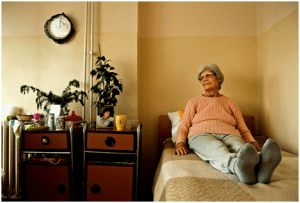Clinical Nurse Specialist Profile – Dr. Kristen Mauk
Kristen Mauk has never been one to stop learning. The clinical nurse specialist has nearly 30 years of experience in rehabilitation and gerontology, a handful of degrees, and has authored or edited seven books. She now helps train the future generation as a professor of nursing at Colorado Christian University in Colorado. She also recently launched her own business, Senior Care Central/International Rehabilitation Consultants, which provides nursing and rehabilitation education throughout the world.
Question: What drew you to nursing? What do you enjoy about it?
Mauk: “I grew up in a medical family. My father was a pediatric surgeon and my mom was a nurse, so I was always around the healthcare professions. However, nursing offered so many opportunities for growth and change while doing what I loved — helping others. There are many aspects of nursing that I enjoy, but feeling like I help make peoples’ lives better has to be the best perk of the job. Nursing is a versatile profession. I started off my career as an operating room nurse, worked for a decade in med-surg, geriatrics, and rehabilitation, then eventually went back to school for additional education so that I could make a greater impact on healthcare through teaching nursing students.”
Question: You have an impressive education. Why did you continue to pursue advanced degrees in the field? How has that benefited you?
Mauk: “First, I am a life-long learner, something that was instilled by my father who was always encouraging his children to explore the world and have an inquiring mind. Dinners at my house were filled with learning activities such as, ‘How does a flashlight work?,’ ‘What is a group of lions called?,’ or ‘For $20, who can spell hors d’oeuvres?’ (By the way, I got that $20!) So, continuing my education through studying for advanced degrees seemed a natural progression when you love to learn and love your work. I felt a need to know as much as possible about my areas of interest, gerontology and rehabilitation, so that I could provide better care to patients and be a better teacher for my students. My advanced education has?opened many doors in the professional nursing world, such as the opportunity to write books, conduct research to improve the quality of life for stroke survivors, or hold national positions in professional organizations.”
Question: What’s one of the most memorable experiences you’ve had, either as a student, educator or in your practice?
Mauk: “There are many memorable experiences I’ve had both as an educator and in practice. One of the most memorable from practice was early in my career working on a skilled/rehab unit in a little country hospital in Iowa. There was an older man who couldn’t find a radio station that played his favorite hymns and one of my co-workers knew that I had a musical background and asked me to sing to him at the bedside. I timidly held his hand as he lay in his hospital bed, and with the door closed because it was late at night, I softly sang all the old hymns I could remember. He closed his eyes and smiled, clasping my hand for nearly an hour of singing. The next evening, I heard him excitedly tell his family members that ‘an angel visited me last night. She had the sweetest voice I’ve ever heard. She held my hand and sang all of my favorite hymns!’ Hearing that outside the door, I smiled, but was later surprised when I stopped in to see him that he truly didn’t seem to remember me. One day later, he died unexpectedly. I often look back and wonder on that experience. In the many years of nursing experience that followed, I have learned that there are sometimes angels where we least expect them.”
Question: What advice do you have for people just starting their education or their professional career?
Mauk: “Nursing is a great profession! Learn all that you can while you are in school and continue to be a lifelong learner. The need for nurses who specialize in care of older adults and rehabilitation is only going to continue to grow because of the booming aging population. There is currently, and will continue to be, a shortage of skilled professionals to meet the demand that is looming with the graying of America. Gain skills that will make you a specialist and afford you additional opportunities. Always give the best care to those you serve. Set yourself apart by building a professional reputation for excellence through advanced education, publication, scholarship, clinical practice, and community service. Then, go and change the world!”
CLINICAL NURSE SPECIALIST PROFILE FOR KRISTEN MAUK






